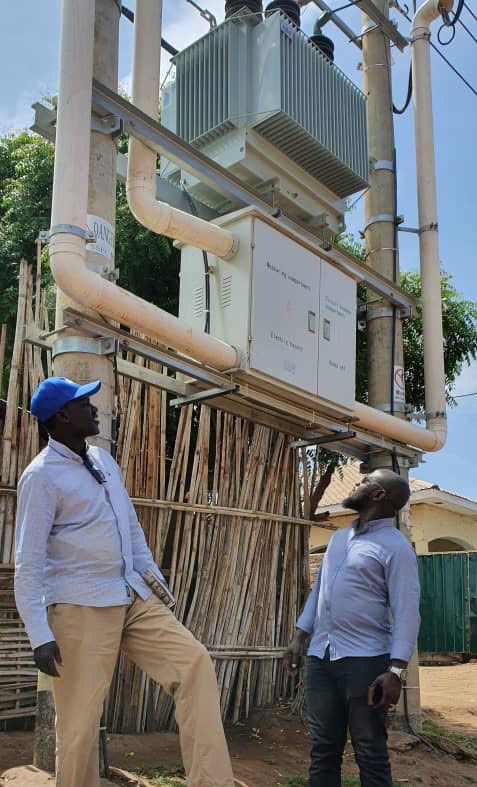Recently, enhancement financial institutions and international corporations have begun backing assignments to revitalize infrastructure and strengthen electricity technology amid a somewhat tranquil time for the eight-yr-aged state. Most of the new expense has focused in and all over Juba—the nation’s cash and most significant town, with some 403,000 citizens.
“There’s a great deal of wealth that is coming with the peace now,” claimed Jacob M. Deng, director of planning and assignments for South Sudan Energy Corporation, the nation’s sole electric utility.
Deng joined the utility in 2010, a yr prior to South Sudan formally split from Sudan. In 2013, the nascent African nation plunged into a brutal conflict that displaced tens of millions of people and remaining almost 400,000 people lifeless. Throughout this time, Deng and his colleagues struggled to maintain the electric technique as funding for conductors, insulators, fuses, and motor oil all but disappeared. Gas suppliers hoarded petroleum, forcing the point out-owned electricity plants to shut down indefinitely, including Juba’s 17-megawatt diesel electricity station.
In the meantime, ants chomped absent at the getting old wooden electricity poles in urban spots. Plans to broaden the nation’s creating ability had been swiftly shelved. South Sudan experienced negotiated an agreement with the Norwegian federal government to construct a forty three-megawatt hydroelectric dam, but the moment the war broke out, Norway redirected its funding towards humanitarian assist.

The function to restore South Sudan’s electric sector began in earnest in late 2018, immediately after South Sudan’s President Salva Kiir achieved a peace deal with rebel chief Riek Machar. (Before this yr, Kiir appointed Machar as vice president.)
Very last November, South Sudan Energy Corporation began running the first segment of Juba’s rehabilitated distribution network. Electricity Development Corporation of China strung up new 33-kilovolt traces, replacing the city’s eleven-kilovolt traces, a network that will eventually provide twenty,000 supplemental clients in the cash town. The Chinese organization is also manufacturing thirteen,450 prestressed concrete poles from a new facility in Juba. The African Improvement Financial institution has authorised a US $fourteen.6 million loan for the grid project.
“Our plan is to go over every person in the total town with the [grid] electricity,” Deng claimed. “I hope that Juba will be liberated from this darkness.”
For now, however, most of Juba’s citizens are still employing their have electricity materials to operate refrigerators or charge personal computers. The utility dismantled the aged grid, and the upgraded technique is continuing little by little in phases. Deng claimed his have home most likely won’t be connected for quite a few additional months. The senior engineer instead works by using a 360-kilowatt rooftop solar array, which he bought a long time back immediately after the city’s unreliable electrical power saved breaking electronics in his house.
The utility is doing work to create or increase interconnections with Sudan, Uganda, and Ethiopia to access into South Sudan’s interior. At the very same time, the youthful state is adding its have technology.
Late final yr, Ezra Group opened a 33-megawatt oil-fired electricity plant, which will use scrubbers to reduce air pollution. The Eritrean organization says it plans to construct a hundred total megawatts of fossil fuel ability in South Sudan by 2021, at a expense of almost $290 million. Govt officers claimed they plan to repay the expense above 17 a long time by charging bigger electrical power premiums, although they admitted the strategy faces obstacles. More than half of South Sudan’s inhabitants lives in poverty, and the country’s regular tariff of 42 cents per kilowatt-hour is by now prohibitively high priced for many homes.
To Deng, diesel-fired technology is not a extended-term solution for South Sudan, provided the risky fuel market place and diesel’s significant contributions to air pollution and greenhouse gas emissions. He claimed the utility is particularly interested in developing hydroelectric assignments to provide the nation’s baseload electricity, while adding solar farms and other renewable assignments to health supplement demand from customers.
South Sudan’s put in electricity ability is about 130 megawatts, a big chunk of which is made use of to provide electrical power to the country’s plentiful oil fields. Having said that, the country’s electricity demand is about three hundred megawatts, an quantity which is most likely to grow through peacetime, Deng claimed.
“We are truly thirsty [for technology],” he claimed. “We want all these resources of electrical power in our sector.”
South Sudan’s utility recently concluded complex evaluations for a twenty-megawatt solar farm and 35 megawatt-hour battery storage technique planned outdoors of Juba. The African Export-Import Financial institution is financing the $45 million project, which could appear on the net as soon as late 2020, in accordance to El Sewedy Electric, the project’s Egyptian builder.
The utility is on the lookout for traders to construct a one hundred twenty-megawatt hydropower project close to Juba, which could expense $490 million to construct above five a long time. South Sudan’s federal government says it also plans to commit in the 1,080-megawatt Grand Fula project proposed close to the Ugandan border, although how and when it would do so is unclear.
Some outdoors specialists have expressed considerations that—along with triggering prospective environmental injury and displacing residents—large hydro assignments would be particularly susceptible to disruption or destruction if violence returns to South Sudan.
The federal government could instead partner with private traders to “lay decentralized grid networks” and provide incentives for “a blend of solar, compact hydro and thermal power” which is generated by independent producers, homes, and institutions, the Sudd Institute, an independent study business, wrote in a 2018 report. That way, really should the country’s fragile peace unfurl, people would still have access to electrical power to satisfy their simple requires.





More Stories
Say No to Runtime Error 429 – How to Fix “Runtime Error 429 Activex Component Can’t Create Object”
Latest Computer Technologies With Computer Forum
How to Stop Malware From Harming Your Computer – Remove Malware Tips!